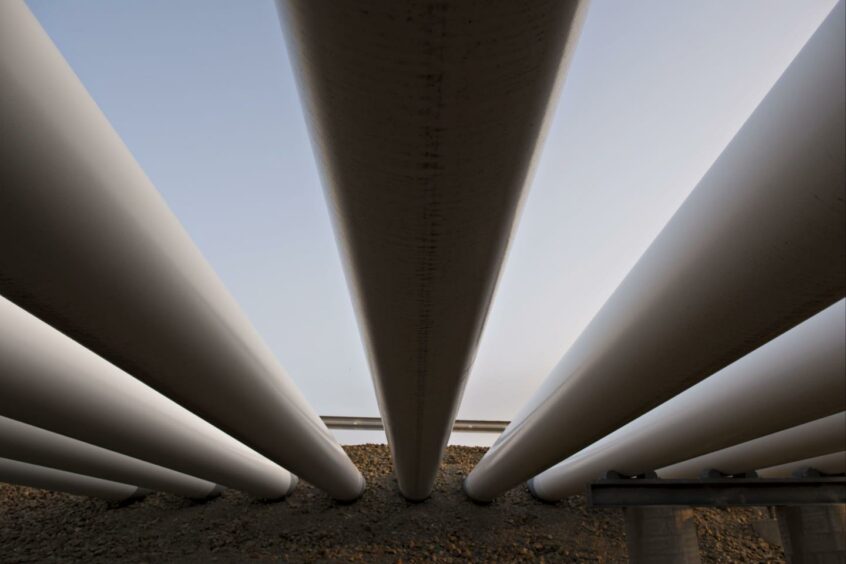
A key crude pipeline from Iraq to a Turkish port on the Mediterranean Sea was knocked out by an explosion on Tuesday, adding pressure to already tight oil markets and sending prices higher with oil extended gains in Asia from the highest close since 2014.
Pipeline operator Botas said the fire has been extinguished, cooling operations are under way and it would reopen once the “necessary measures” had been taken. The cause of the explosion was unknown. It’s a key route bringing oil from northern Iraq to Europe via the port of Ceyhan, and the blast is the latest incident in a series of disruptions the market has suffered in recent months.
Oil prices extended gains in Asia on the news after closing at a seven-year high. Global crude inventories are already near the lowest level since October 2019 with the omicron virus variant not having much of a demand impact and supply problems in Libya and Kazakhstan. Goldman Sachs Group Inc. has predicted Brent will hit $100 a barrel in the third quarter.
The explosion hit in the Turkish province of Kahramanmaras, at kilometer 511 of the route to Ceyhan, Botas said. While it’s not clear how quickly the facility can be brought back, the loss is a major blow: The pipeline moved more than 450,000 barrels a day last year.
The conduit consists of two pipes running side by side, with the crude then loaded onto tankers and shipped mostly to European refineries. The oil is a mix of barrels exported on behalf of the central government in Baghdad and the Kurdish Regional Government, which controls the northeast of the country.
The pipelines have been halted before. Back in 2012 blasts blamed on saboteurs halted the link for several months.
West Texas Intermediate for February delivery rose 1.8% to $86.98 a barrel on the New York Mercantile Exchange at 9:28 a.m. in Singapore after advancing 1.9% on Tuesday.
Brent for March settlement gained 1.6% to $88.89 a barrel on the ICE Futures Europe exchange after closing at the highest level since 2014 on Tuesday.
The prompt timespread for Brent was 77 cents a barrel in backwardation, compared with 69 cents a week earlier.